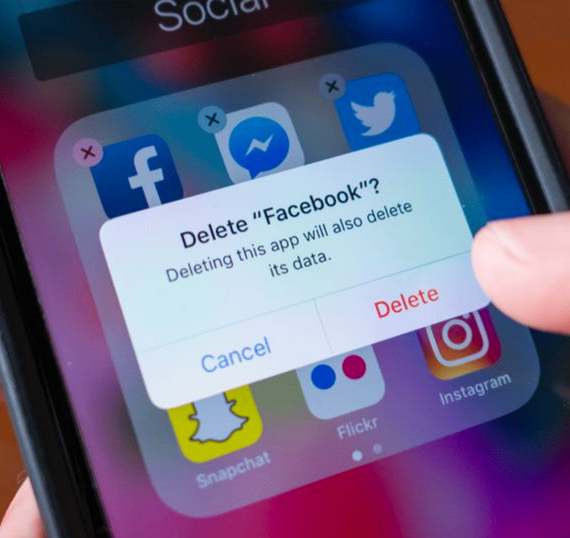 Ask anyone how they’ve been feeling these last few months, and you’re bound to hear them complain about being too easily distracted, unable to focus on the work at hand, listless, even unable to sleep.
Ask anyone how they’ve been feeling these last few months, and you’re bound to hear them complain about being too easily distracted, unable to focus on the work at hand, listless, even unable to sleep.
Want an easy fix? Draw some hard lines around your social media use.
It’s no secret I’m not a huge fan of Facebook for business use. We deleted our Facebook presence way back in 2015. We weren’t angry, or triggered, or resentful. We simply made the decision from a business point of view that our marketing resources were better spent elsewhere. (We were right; we didn’t lose anything by our decision and gained more time to focus on our LinkedIn and Twitter presence.)
For us the decision to leave FB was one and done; but for individuals, the call isn’t that easy to make. In many ways, Facebook is the way we stay in touch with family and friends on a daily basis, something that’s incredibly important to our mental well-being. Yet having the benefits of social media at our fingertips means the downsides are there too … the overexposure to disinformation, the divisive politics and social arguments, even just the endless scrolling when our time would be better spent reading a book or taking a walk.
So when I came across Miriam Kramer’s article in Mashable from two years ago, it resonated in a whole new way today.
Kramer didn’t go to the extreme of closing her Facebook account and deleting her profile. She simply removed the app from her phone. She can still access it on her computer … but she doesn’t do that often either.
“My days of mindlessly scrolling through random updates from my mom’s friends and people I haven’t spoken to since high school are over,” she writes.
“I don’t miss it,” Kramer continues. “I don’t miss the weird sensation of unnecessary updates from ex-boyfriends and other assorted once-familiars. I don’t miss having my train time hijacked by being caught up in the political fights (or the rage-inducing comments that followed them).
“I also don’t feel like I’m missing out on any kind of news at all, because let’s be honest, Facebook’s days of providing news of actual use are long behind it,” she continues.
Kramer draws some Iines around her social media usage in other ways. Twitter? That’s where she goes for political discussions. LinkedIn is strictly business, and on Instagram, she only follows the people who post pictures that make her happy.
For real news, she goes directly to her trusted media sources. (Pro tip: Traditional newsreaders are better informed on the truth than those who get their “news” on social media.)
Mindless social media consumption is dangerous to our mental health. If ever we needed proof, just look at what’s happened this year, with a new horror coming at us seemingly every day, complete with rampant speculation and polarization. It also has this weird reciprocity trap, where we feel pressured to like and comment so our friends know we care about them.
These platforms take advantage of that human trait for reciprocity, among others, to keep us fearful of missing out. (Digital reciprocity is not a mandate, btw. We’ve been trained to think so, in order to stay engaged on those platforms, and we’ve unwittingly become addicted to this behavior. It’s time to return to a more normal and meaningful form of social interaction.)
You can break the spell right this minute. Just delete the app. If you really miss it, you can always download it again … but my guess is you won’t. It’s freeing to step away from the notifications, the constant clamoring to engage on a platform that hopes to disengage us from what’s happening right in front of us.
You don’t have to ruthlessly purge your Friend list, or unfollow anyone who disagrees with you. And you certainly don’t have to apologize for taking time to be present in your own life. Perhaps if your FB “friends” really miss you, they’ll reach out directly, maybe write a letter or send a holiday card. Maybe a call.
And if you’re not mindlessly scrolling your feed, you’ll have plenty of time to talk.
